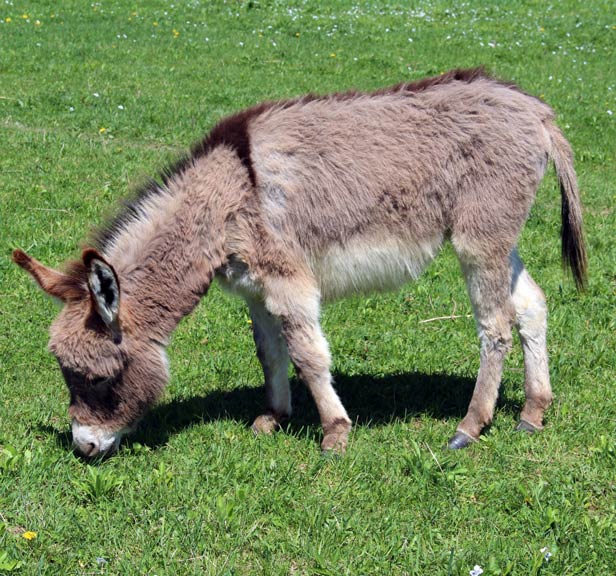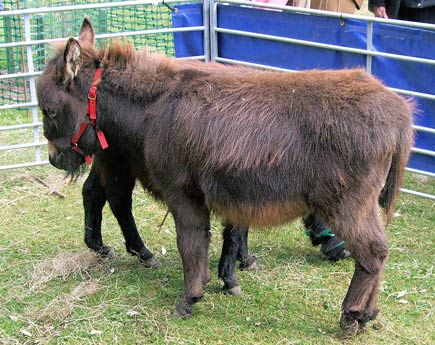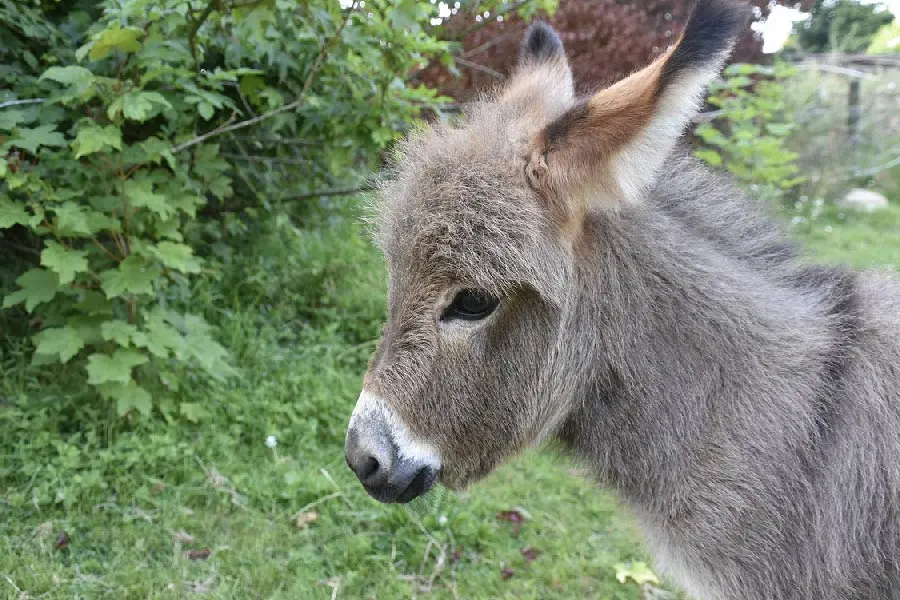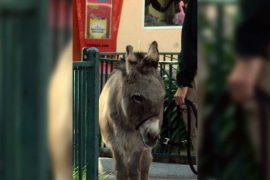Do you have a new place and room for a one-of-a-kind pet? A miniature donkey could work well. However, you must first determine how much land they require.
A miniature donkey requires at least one acre of land to be happy. Although they could survive on smaller pastures (as little as 0.5 acres per donkey), it would be inequitable to them.
However, there are additional factors to consider. This article will look at these topics. We’ll talk about:
- How much land do mini donkeys require?
- What is the absolute minimum amount?
- What do you need on the land to keep them happy?
- Why shouldn’t you keep them in your house?
Let’s get started.
Why Does a Miniature Donkey Need an Acre?
A minimum of 0.5 acres of grazing space is required per donkey, though it is rarely necessary to graze the entire area at once. If more land becomes available, the donkeys will benefit from having more space to graze and move around.
The following are the main reasons miniature donkeys require at least one acre of land:
- Area for running, exercising and playing
- Potential grazing ground (if the grass is healthy)
- Room to grow and breed
The more land you have, the better. Donkeys thrive in bigger pastures. The disadvantage of having too much land with minis is that it is difficult to keep an eye on them.
You want them close enough so that you can see them and know they’re safe and out of harm’s way.
Can Miniature Donkeys Survive on 0.5 Acres?
On 0.5 acres, miniature donkeys can exercise and graze. Furthermore, each donkey requires at least 50 square feet of shelter. Fencing is required to keep your donkey safe and secure, but mobility may also be required depending on your grazing setup and pasture management.
Mini donkeys have been kept in small pastures with no apparent problems, but it’s not a good idea in general.
- They need space to turn around and move.
- Being cramped can lead to stress and possibly future health problems.

What Does a Miniature Donkey Require for a Home?
Miniature donkeys are healthy animals, but they do require shelter from inclement weather. Donkeys, unlike native ponies, are not waterproof, so a three-sided field shelter with the entrance facing away from the prevailing winds is the bare minimum and will also provide shade in the summer.
The following are the best things to keep on the land where you’re raising mini donkeys:
- Shelter or barn: to avoid the rain and biting insects.
- Paddocks for training: to help break them gently and introduce them to the public.
- Feeding carriers: an acre of grass may not be enough. You’ll need additional supplies to feed your mini donkeys, especially treats!
- Toys: Donkeys enjoy toys such as beach balls and hula hoops. Anything soft and secure.
Again, the more land you have, the easier it is to set up all of these things.
What Is the Best Place to Keep a Miniature Donkey?
Donkeys, like many other animals, are happiest when they have plenty of safe outdoor space to roam and graze on, as well as an indoor shelter to keep them out of the elements when necessary, though what their living space looks like depends on your resources and geography!
If you are bringing new miniature donkeys into your life, you must also ensure that you have an appropriate quarantine space to keep you and your existing residents safe.
Open land is the best place to keep a miniature donkey. Areas with high-quality grass and no obvious dangers or safety hazards are also essential.
They will also require some form of shelter. If you have several acres of land, that may be sufficient. You can divide and fence the land and rotate it as your donkey’s graze, move, and play in each area.
The land will most likely become muddy over time, especially during wet weather. That is yet another reason why more land is preferable.
Can a Miniature Donkey Be Kept in the Yard?
According to The Donkey Sanctuary, miniature donkeys must live outside and require a minimum of half an acre per donkey. There should be some kind of shelter in their pasture to protect them from the rain and strong winds.
You can keep a mini donkey in your backyard if it is large enough (an absolute minimum 0.5 acres). You must ensure that the space is clear, with only a shed or yard for their use.
Other things to consider:
Donkeys should not be kept in backyards near major roads, where they could escape and injure themselves (or get stressed from repeated noise)
- Neighbors: living next to donkeys isn’t for everyone. It is polite to first seek permission from your neighbors.
- Water supply: Your minis should have easy access to clean drinking water.
You should also look into the zoning laws in your state’s residential area. Backyard donkeys are not permitted everywhere.

Can a Miniature Donkey Be Kept in the House?
According to Animal Planet, three million people in the United States have equine animals such as miniature donkeys as household pets, citing a statistic from the National Miniature Donkey Association.
While you can allow your miniature donkey to spend some time inside, they must spend several hours outside each day. Allow them to graze for four hours, according to experts. Otherwise, they’ll come in and steal everything you own.
Regardless of what you may hear or see on TV, keeping a miniature donkey in your home is not a good idea. Donkeys have evolved to be outside animals over thousands of years. They thrive in that environment.
Although they are small and you may be fooled into thinking they will be fine inside your home, you must consider both parties. Miniature donkeys can be challenging to train. Making sure they keep your house clean could be a nightmare.
They also require space to run, play, and graze.
Final Thoughts
Miniature donkeys require half an acre to an acre of space as a rule of thumb. A good shelter, a salt lick, toys, hay, water, and secure fencing with well-fastened gates are also required.
Your mini donkeys will be extremely happy and live healthy lives if you can provide all of these things as well as companionship. They will also provide you with a great deal of pleasure because they are amazing, intelligent, and loving creatures that form strong bonds with their owners.



![Can Miniature Donkeys Be Therapy Animals? [Hint: They’re Different] can-miniature-donkeys-be-therapy-animals](https://donkeyonfarm.com/wp-content/uploads/2024/10/can-miniature-donkeys-be-therapy-animals-270x180.jpg)
![How Much Are Miniature Donkeys [Plus Where to Buy Them?] how much are miniature donkeys](https://donkeyonfarm.com/wp-content/uploads/2023/09/Perry-miniature-donkey-in-Palo-Alto-CA-2016_11zon-270x180.jpg)

![What is a Miniature Donkey? [How Are They Different?] what is a miniature donkey](https://donkeyonfarm.com/wp-content/uploads/2022/05/What-is-a-miniature-donkey-270x180.jpg)